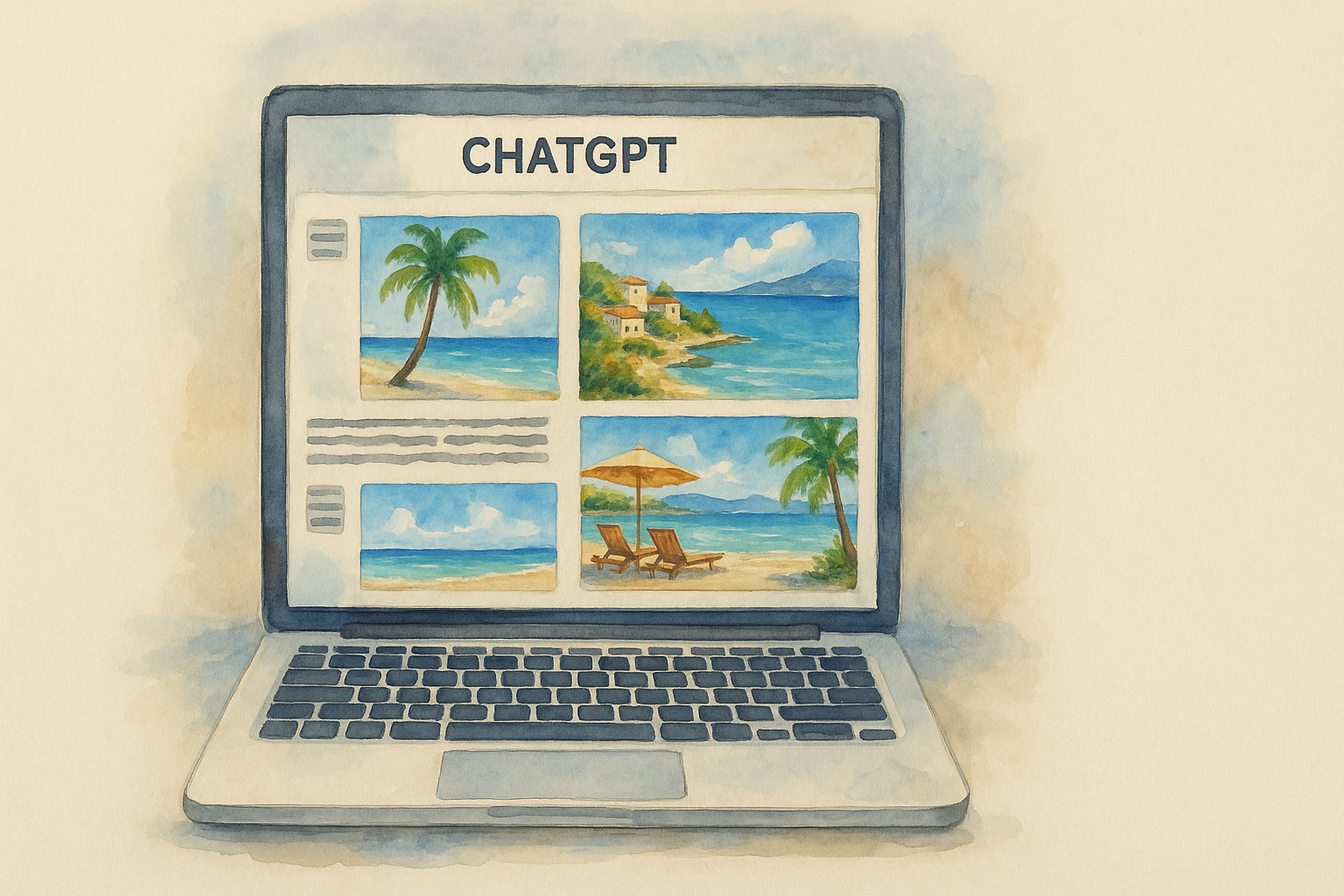Artificial intelligence is increasingly playing a significant role in how people plan and book their holidays, and the latest research from ABTA reveals just how rapidly this change is occurring.
According to the travel industry body, almost one in five young adults in the UK now use AI tools like ChatGPT to design or inspire their next trip. While the traditional package holiday remains the most common eventual purchase, this growing trend signals a real shift in how people discover and imagine travel experiences.
The generational gap is striking.
Fewer than 3% of over-55s said they use AI for holiday ideas, while 25% of Britons still prefer to leaf through a printed brochure. Yet almost two in five said they’d be confident letting an AI assistant book their travel — a sign of where the industry might be heading.
ABTA’s research, unveiled at its annual convention in Magaluf, also showed that the appetite for travel is back to near pre-pandemic levels. 87% of people took a holiday at home or abroad last year, and a record number now describe travel as their most important discretionary spend, above leisure, gadgets, or entertainment.
Among 25–34-year-olds, 90% said holidays are important for their mental health, compared with 80% across all age groups. They’re also twice as likely (20% vs. 10%) to choose a company, hotel, or destination based on its environmental commitments.
Not everyone in the industry is convinced sustainability is the deciding factor, though. Jet2 CEO Steve Heapy noted:
“Everyone wants to be greener – but if it’s costing more money, they tend to think twice about it.”
Even so, he acknowledged that younger travellers “seem to be a lot more responsible and healthier living than when I was young.”
ABTA’s chief executive, Mark Tanzer, summed up the challenge facing travel brands:
“The challenge is to harness AI’s potential to support our businesses, while continuing to celebrate and champion the personal touch that comes with booking through a travel agent or tour operator.”
The findings suggest that AI is no longer a novelty. It’s becoming an integrated part of how younger consumers plan, compare, and even book their travel. For the industry, this means striking a balance between automation and authenticity, ensuring that the digital journey remains personal.
Key stats from the study:
- 18% of 25–34-year-olds use AI for trip inspiration
- Less than 3% of over-55s do the same
- 25% of Britons still use printed brochures
- Almost 2 in 5 would let AI book their travel
- 87% of people took a holiday last year
- 90% of 25–34-year-olds say holidays support their mental health
- 20% of young adults choose based on sustainability (vs. 10% overall)
- Overall use of AI for travel planning has doubled in a year (4% → 8%)
It’s clear that AI isn’t replacing the human side of travel – it’s enhancing it. The question now is how travel brands can blend technology and expertise to deliver more imaginative, personalised experiences.

